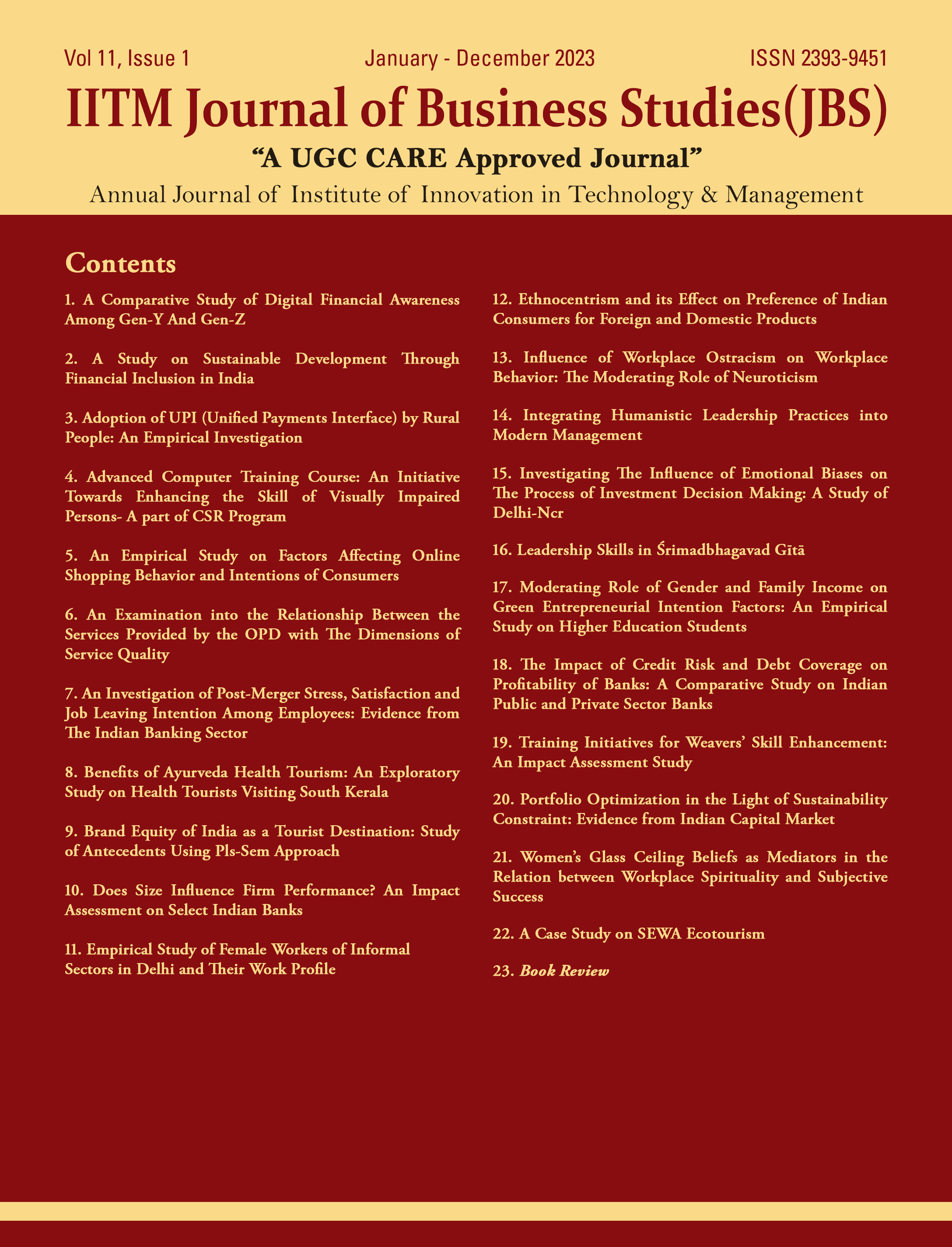A Case Study on SEWA Ecotourism
Keywords:
Ecopreneurs, Ecotourism, Employment, Rural, SEWAAbstract
Shree Vanalakshmi GaneshpuraMahila Sewa VrukshUtpadakSahkari Mandli Ltd, created with the intention to provide employment to marginal womeninGaneshpura village, situated in the Mehsana district of Gujarat, is now an Eco-Tourism center too. It started with 41 women, who transformedbarren 10-acre land into an irrigated plot growing various fruits, vegetables, various types of ayurvedic plants, trees, etc. The entire model is unique in nature supporting the self-reliance of these SEWA sisters. The visitors enjoy its beauty, nature, Gujarati food, culture, organic fruits and vegetables,and the peace of this place.
References
Bhalia, N (2012). Sisterhood brings rights to India’s low-caste, rural women. Retrieved from http:// in.reuters.com/article/2012/03/08/sisterhood-brings-rights-to-indias.
Martha Chen; Chris Bonner; Françoise Carré (2015). “Organizing Informal Workers: Benefits, Challenges and Successes”. UNDP Human Development Report. 2015 UNDP Human Development Report Office: 13.
Spodek, Howard (2011). Ahmedabad: Shock city of the twentieth century India. Bloomington, Indiana: Indiana University Press. pp. 253. ISBN 978-0253355874.
Oza, Rupal (2006). The Making of Neoliberal India. Routledge. pp. 21–44.DOI: https://doi. org/10.4324/9780203624791
SEWA (2023). Annual Report 2022-23. Retrieved from https://www.sewa.org/reports-appeal/ 6. Spodek, Howard (October 1994). “Review: The Self-Employed Women’s Association (SEWA) in India: Feminist, Gandhian Power in Development”. Economic Development and Cultural Change. University of Chicago Press. 43 (1): 193–202. doi:10.1086/452141. JSTOR 1154338. S2CID 15523384

